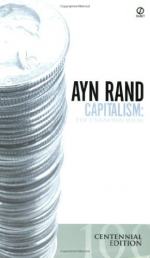
|
| Name: _________________________ | Period: ___________________ |
This test consists of 15 multiple choice questions and 5 short answer questions.
Multiple Choice Questions
1. The government established by the Founding Fathers is based on theories that began with whom?
(a) Aristotle.
(b) Plato.
(c) Marx.
(d) Socrates.
2. What does the term "evils of monopoly" refer to?
(a) Coevasive monopoly.
(b) Coercive monopoly.
(c) Corrosive monopoly.
(d) Corrupt monopoly.
3. The power of the railroads, according to the author, comes from where?
(a) The economy.
(b) The government.
(c) The market.
(d) The subsidies.
4. The first labor laws aimed at children are enacted in what year?
(a) 1818.
(b) 1808.
(c) 1798.
(d) 1788.
5. According to the author, what will cure economic problems quickest and best?
(a) Protectionism.
(b) Government.
(c) The economy.
(d) Restrictions of trade.
6. What do political economists assume that man is working for?
(a) The good of his family.
(b) The betterment of himelf.
(c) The good of society.
(d) The betterment of his situation.
7. One cost of union negotiated wages, according to the author, is what?
(a) Unemployment.
(b) Full employment.
(c) Mobility of employment.
(d) Investment in employment.
8. What is one of the negatives that political power uses?
(a) Restrictions.
(b) Taxes.
(c) Threat of imprisonment.
(d) Regulation.
9. The term "evils of monopoly" refers to a situation in which the monopolist is completely ______ of the market.
(a) Evasive.
(b) In control.
(c) Demanding.
(d) Independent.
10. The author believes that antitrust laws are a _______ ________________ of history.
(a) Twisted understanding.
(b) Gross misinterpretation.
(c) Failed experiement.
(d) Factual representation.
11. The author feels that the only way to make the industry responsive to the market is to make the airwaves what?
(a) Free.
(b) Industry-controlled.
(c) Bought and sold.
(d) Private property.
12. What is one of the keystones of capitalism?
(a) Thinking.
(b) Philosophy.
(c) Logic.
(d) Reason.
13. What type of businessmen does the author feel are persecuted?
(a) Local businessmen.
(b) American businessmen.
(c) Foreign businessmen.
(d) Small businessmen.
14. Copyrights apply to what?
(a) Ideas.
(b) Actual locations.
(c) Medicines.
(d) Physical items.
15. The existence of money allows people to avoid the problems of ______.
(a) Barter.
(b) Interest.
(c) Savings.
(d) Credit.
Short Answer Questions
1. A fear of _______ leads to the passage of the first antitrust laws.
2. How does the author think the U.S. government does with creating property rights in airwaves?
3. What is one function of money?
4. What is the name of the theory that states that good is embodied in various actions regardless of benefits and consequences?
5. What is the first antitrust legislation?
|
This section contains 412 words (approx. 2 pages at 300 words per page) |

|




